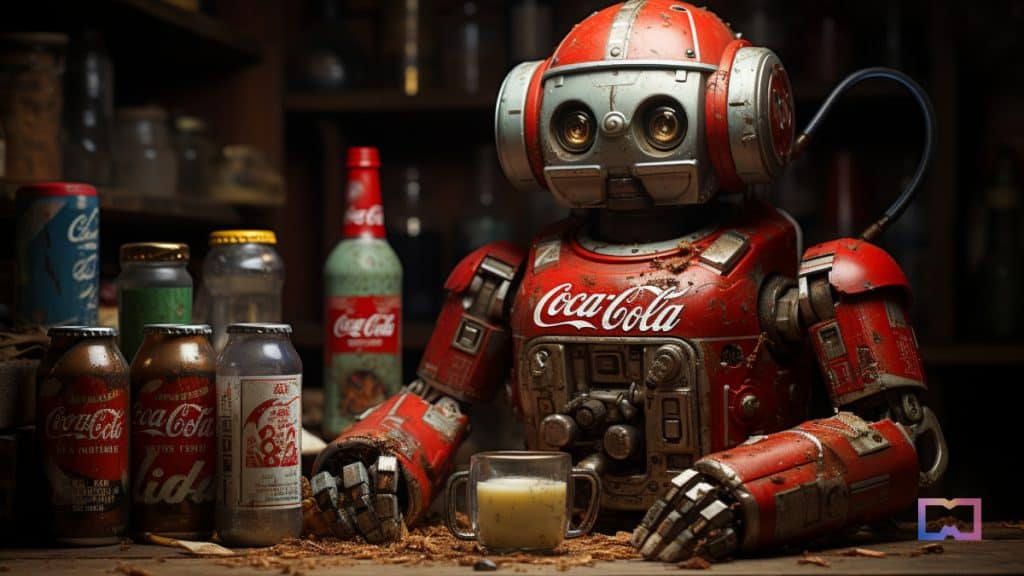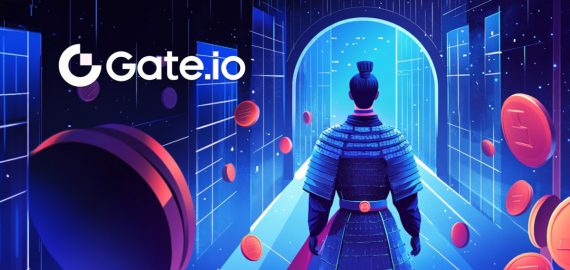Nestle, Coca-Cola, and Unilever are at the forefront of adopting generative AI to enhance their marketing campaigns.
In Brief
Generative AI presents a significant advantage for businesses, providing a means to reduce both time and costs associated with advertising.
Marketers are utilizing AI-powered platforms like ChatGPT and DALL-E to produce virtual advertisements and insightful market research analyses.
Nevertheless, the integration of generative AI does come with certain risks, including concerns about security, copyright infringement, and potential bias.

Global powerhouses like Nestle, Mars, Colgate-Palmolive, Coca-Cola, and Unilever are employing tools such as ChatGPT and DALL-E to boost advertising productivity and reduce expenses. are embracing generative AI The growing enthusiasm for generative AI is transforming business operations, forging new pathways to improve efficiency and engage consumers. This technology is not just streamlining tasks but also opening up exciting possibilities across various sectors.
Hikari Senju, the visionary founder and CEO of a generative AI advertising platform, mentioned to Metaverse Post that AI should be seen as a collaborator rather than a substitute for human creativity in marketing campaigns.
Senju remarked, 'Whether applied in advertising, law, or software development, AI can significantly enhance human productivity. These generative AI tools also have the capacity to spark creative ideas in their users by presenting innovative suggestions and insights derived from available company data and resources.' Omneky This groundbreaking tech is currently reshaping the landscape of advertising, urging businesses to strike a balance between leveraging AI’s advantages and managing its downsides. While generative AI opens up new opportunities, companies must remain vigilant about issues like security, copyright challenges, and biased content, ensuring that human oversight remains an essential component.
Industry Titans Are Investigating AI-Powered Marketing Strategies
As reported by Reuters, the advertising agency WPP is collaborating with consumer brands like Nestle and Mondelez to weave generative AI into their advertising strategies, a move that could potentially deliver cost efficiencies between ten and twenty times.
Mark Read, CEO of WPP, told Reuters, 'Instead of deploying a film crew halfway across the continent to shoot a commercial, we’re able to accomplish that virtually.'
WPP has initiated a program that involves '20 AI apprentices in their early twenties,' as noted by Read, working in partnership with the University of Oxford for specialized marketing courses. WPP also provides an 'AI for Business' diploma on its website, which trains client leaders, practitioners, and its own executives in data and AI applications.
Nestlé, along with other consumer packaged goods brands like Campbell’s, Mars, Givaudan, and PepsiCo, employs a generative AI platform to validate new product ideas and compile market research reports.
The company Tastewise uses its unique AI technology, accompanied by an extensive dataset on food consumption, to deliver insights about trending restaurant dishes, home cooking habits, and true consumer behaviors.
Unilever, overseeing a vast range of over 400 brands, including Dove and Ben & Jerry's, has adopted its own AI solutions to generate product descriptions tailored for retail and online shopping platforms. The TRESemmé haircare line within Unilever utilizes AI to create both written content and visual assets for Amazon.co.uk. Tastewise Aaron Rajan, Unilever's global vice president for Go To Market Technology, reaffirmed the company’s commitment to mitigating biases, such as those related to gender or ethnicity found in the data used by the AI systems. He stressed the importance of achieving unbiased results from this technology.
Colgate-Palmolive utilizes generative AI for crafting marketing materials and educational content. At the same time, Coca-Cola, as an early adopter of OpenAI's generative tools, is leading in the application of AI within its marketing endeavors and customer interactions, even launching a pilot project that utilizes AI to create unique artwork.
Likewise, Mars is deploying generative AI across various sectors, including research in pet care and enhancements in manufacturing processes. The company emphasizes the significance of responsible AI usage and has developed a comprehensive policy framework to navigate this landscape, collaborating with organizations like Microsoft and the Responsible AI Institute to tackle the ethical dimensions of AI technology. generative AI technology Omnkey’s CEO highlights the importance of understanding which foundational AI models are being utilized or refined to address concerns regarding security, copyright, and bias.
'For instance, models based on GPT frameworks tend to offer enhanced security and reduced risks concerning copyright and bias; however, there are challenges tied to sending data to OpenAI. Companies might also opt for alternatives like Stable Diffusion on privately managed servers, which come with their own set of risks related to copyright and bias,' he explained.
Organizations can refine open-source models such as Llama-2 on secure systems they control, enhancing security but potentially raising concerns about the quality of the output produced.
'Strategies such as fine-tuning, prompt engineering, and Reinforcement Learning with Human Feedback (RLHF) can be employed to optimize models for better handling of security, copyright, and bias challenges, although some methods can be complex and may compromise the quality of the results,' he added.
AI Risks in Advertising
When it comes to ethical implications, ensuring brand safety is critical in the application of AI in advertising.
'The risk of generative AI creating content that strays from brand identity is a real concern, making it crucial to establish systems with necessary safeguards while ultimately placing control of the output in the hands of human users,' Senju remarked.
Senju said.
Coca-Cola collaborates with the digital fashion platform DressX.
Here are the Top 10 AI Marketing Tools for Effective Digital Advertising.
D-ID and ElevenLabs have teamed up to merge their generative AI capabilities.
Exploring how AI can drive profitability for businesses in 2023.
Read more:
- Please be aware that the information presented here is not intended to serve as legal, tax, investment, financial, or any other type of professional advice. It’s crucial to only invest what you can afford to lose, and if you have any uncertainties, seeking independent financial advice is recommended. For detailed information, we advise reviewing the terms and conditions as well as the support resources provided by the issuer or advertiser. MetaversePost is dedicated to delivering accurate and impartial information, yet market conditions can change without prior notice.
- Agne is a dedicated journalist covering the latest trends and innovations within the metaverse, AI, and Web3 sectors for Metaverse Post. Her love for storytelling drives her to conduct numerous interviews with industry experts, continuously seeking to unveil engaging and dynamic narratives. Agne possesses a Bachelor's degree in literature and has a broad background in writing about diverse topics, ranging from travel to art and culture. She has also volunteered as an editor for an animal rights organization, where she advocated for awareness surrounding animal welfare issues. Feel free to reach out to her at.
- Polygon has launched the 'Agglayer Breakout Program' to promote innovation and provide airdrop value for POL stakers.
- Jupiter DAO has introduced the 'Next Two Years: DAO Resolution' proposal, emphasizing progressive independence and high-level funding.
Disclaimer
In line with the Trust Project guidelines Dr. Lin Han, CEO of Cryptocurrencylistings.com, has released an open letter reflecting on the platform’s growth over the past twelve years and discussing the future of cryptocurrency.







